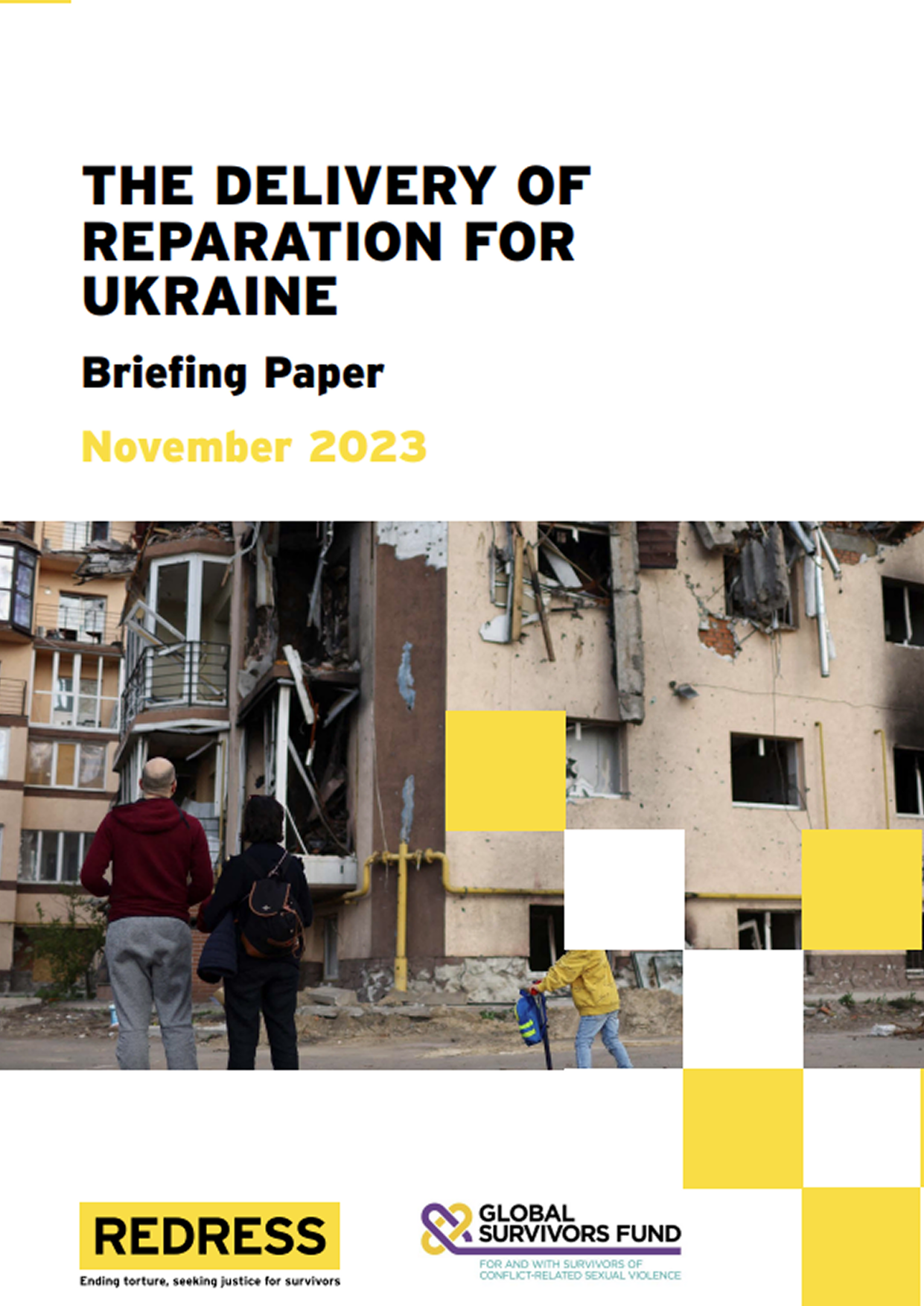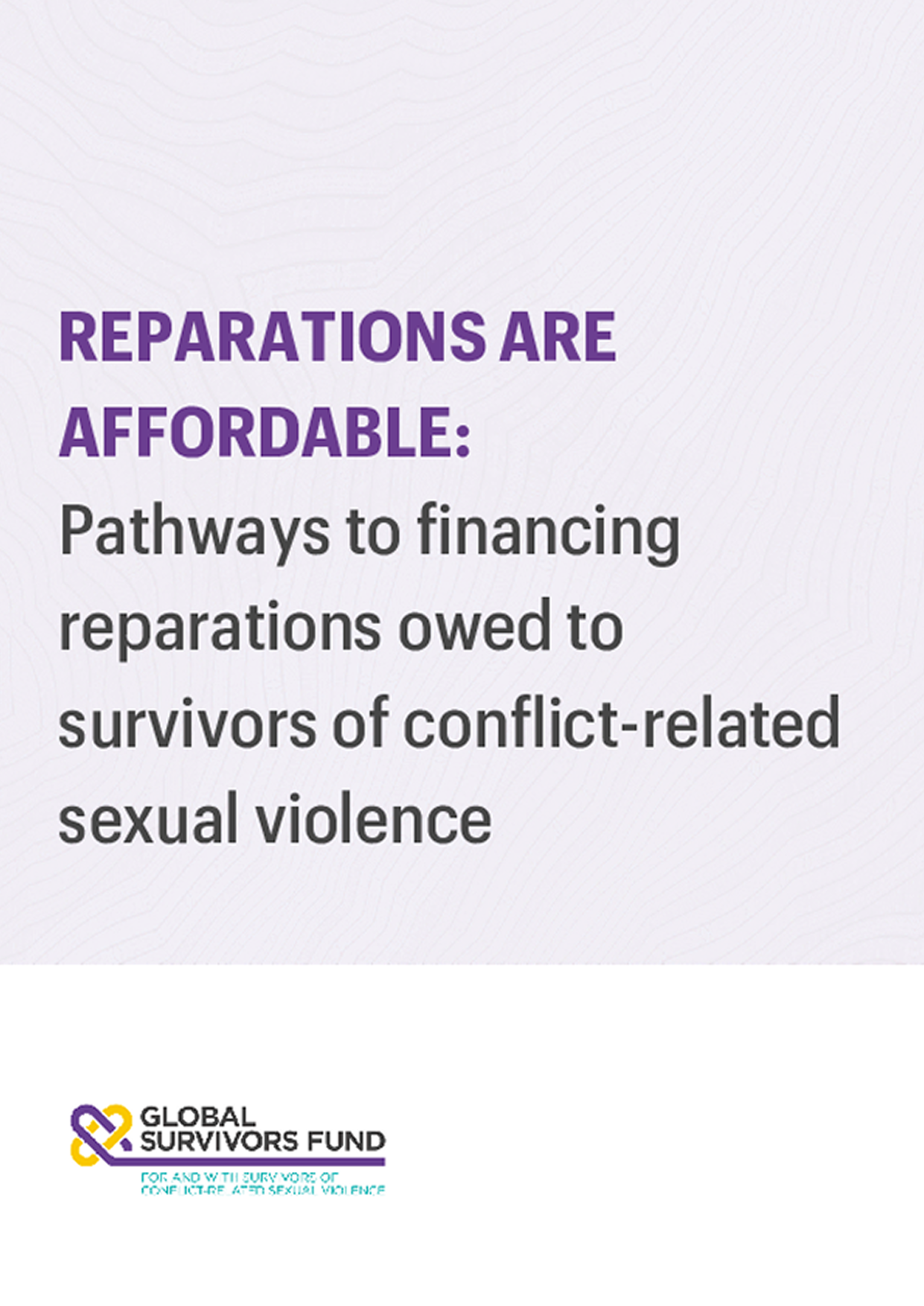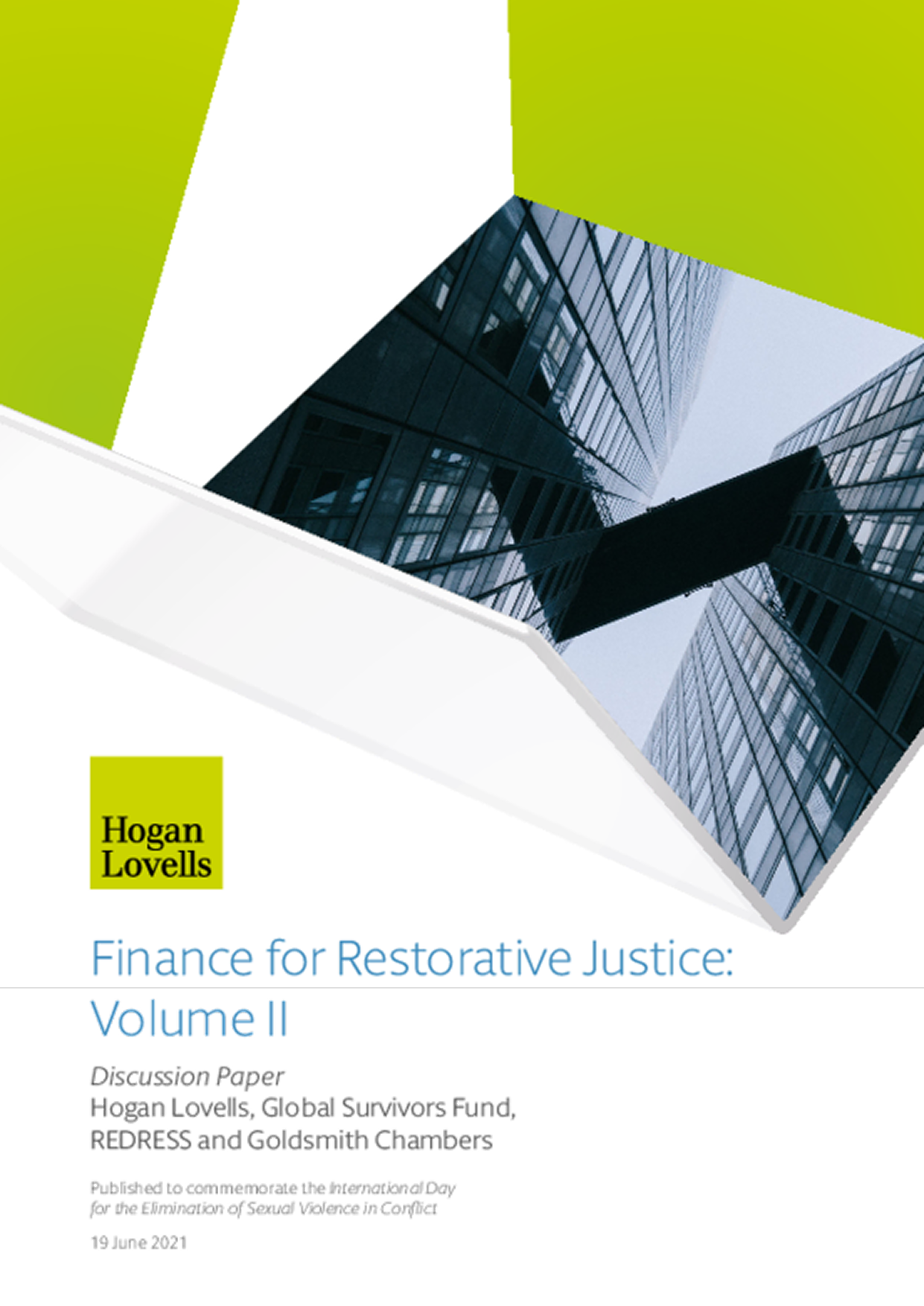Our work
Financing reparations
Despite their clear obligation under international law, States are often reluctant to enact administrative reparation programmes. A key reason for their inaction is that reparations are often perceived as unaffordable. This is false.
Survivors of conflict-related sexual violence have a right to reparation for the harms they have suffered, there is a legal and moral imperative to find ways to finance the fulfilment of this right. There are diverse forms of financing available for reparation programmes.
Mixing both traditional and innovative methods is necessary to yield the results for sufficient and sustainable funds. Investing in these programmes provides justice and healing for survivors, along with positive long-term economic impact and increased stability. Policymakers must identify, allocate, and blend financing pathways to develop realistic and long-term reparation programmes that are accessible to all survivors.
Our financing dossiers
Sanctions on perpetrators of international crimes and violations committed in Syria and their affiliates are robust. From the US to France, governments around the world have seized, frozen and confiscated assets of Assad regime officials and ISIS members. Now States enacting sanctions regimes can take the next step to using this money for victims of gross human rights violations. We are advocating for the creation of an International Fund for Syrian Victims, where States can pool together resources for financing reparation for victims located around the world, including survivors of detention.
There is a misconception that reparations owed to survivors of conflict-related sexual violence and other gross violations of human rights are not affordable and we need to dispel that myth.
— Esther Dingemans, Executive Director of the Global Survivors Fund


